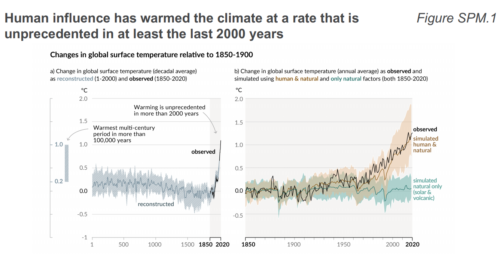A preliminary draft of the ECL-USA Climate Change Noble Purpose for Engineering Statement is complete. This statement was prepared with input from a working group of 25 that included representatives from 16 engineering organizations and participants in the ECL-USA Climate Change Summit. We are open to additional feedback and input from others. Our goal is to issue a final statement early in 2022. The entire statement is copied below, and you can also download a copy of the statement at the link below.
Ultimately, our goal is that this statement will impact the way the engineering community does its work, with a greater emphasis on addressing climate change, both through reducing emissions and adaptation to our changing climate.
Climate-Change-Noble-Purpose-Statement-101321.pdf
CLIMATE CHANGE NOBLE PURPOSE FOR ENGINEERING STATEMENT (The Role of the Engineering Community in Addressing Climate Change)
The consensus of climate scientists can no longer be denied; climate change is real; the impacts are serious—and they are accelerating. Across all economic sectors, climate change is being accelerated by human-created technologies. In addition, we have seen throughout history that those people with the least resources are the most impacted by major challenges like climate change. Because the Engineering Community (1) is central to the creation and use of these technologies, we are uniquely positioned to help lead the way out of this climate crisis. There is an urgent imperative for the engineering community to take informed and intentional actions now to both reduce greenhouse gas emissions and adapt to the impacts of a changing climate. It is our duty and purpose to serve humanity in this way – contributing our skills and knowledge, without reservation, to help society make the best use of Earth’s precious resources.
(1) The “Engineering Community” includes engineers, scientists, technologists, computing and design professionals, and others engaged in the creation, implementation, maintenance, and regenerative lifecycles of technologies as well as the stewardship of the natural environment.
Recent changes in the climate are widespread, rapid, intensifying, and unprecedented in thousands of years. Unless there are immediate, large-scale reductions in greenhouse gas emissions, limiting warming to 1.5°C will be beyond reach. The most recent report from the Intergovernmental Panel on Climate Change (IPCC) (2) clearly demonstrates that the risks of climate change are significant and escalating. The scientific evidence includes these highlights:
- Global temperatures have steadily risen since the beginning of the Industrial Revolution in the late 1800’s at rates that are unprecedented in at least the last 2,000 years (see Figure 1).
- Over this same period, atmospheric concentrations of carbon dioxide and other greenhouse gases have increased to historically high levels as a result of human activities.
- Multiple other indicators of climate change include shrinking Arctic sea ice, melting glaciers, sea level rise, more frequent and intense heat waves and droughts, and increased frequency and intensity of heavy precipitation events.
(2) IPCC’s Sixth Assessment Report incorporated the work of 234 authors from 65 countries, 28% women and 72% men; included assessment of 14,000 scientific publications; and addressed 78,000+ review comments from 46 countries.

Figure 1. Source, United Nations Intergovernmental Panel on Climate Change Sixth Assessment Report
The latest EPA inventory of greenhouse gas emissions by economic sector clearly demonstrates that climate change is driven by technologies that people create and use (see Figure 2). Although they have benefited society for generations, we now see the urgent imperative to transition away from technologies that caused climate change. The engineering community must play a central role in the creation and adoption of new technologies that will make this transition a reality.

Figure 2. Source, Environmental Protection Agency
Engineers and the engineering community are uniquely positioned to take a leadership role on behalf of society to limit the impacts of climate change through both reduction of greenhouse gas emissions and adaptation to a changing climate. Our professional duty takes on new meaning with this imperative to address climate change. Practitioners in the engineering community, both established and aspiring, must adopt a mindset that infuses climate change as a fundamental consideration for their work across all disciplines and economic sectors.
We can demonstrate this leadership role through contributions in the following areas:
- Educating the public (and those in the engineering community) around the science of climate change and the strategies that will most effectively transition our energy system and facilitate adaptation to a changing climate.
- Engaging young professionals in the engineering community who place a high value on addressing climate change and empowering them to drive change in their organizations.
- Advocating for public policies that address climate change, such as incentivizing energy efficiency and reduction of greenhouse gas emissions and embodied carbon, while also prioritizing public and private sector expenditures for adaptation.
- Unleashing innovation and entrepreneurship from the engineering community to contribute to transformational developments in areas that include energy system modeling, energy storage, renewable energy, electrification, energy efficiency, hydrogen, nuclear energy, carbon capture and storage, reduction of embodied carbon in materials and material choice, transportation/land use, agriculture, natural climate solutions, and adaptation.
- Producing and using information and communications technologies that are climate-change neutral, to communicate sound, scientifically valid information about climate change to society while preventing the spread of misinformation and information contaminated by conflicts of interest.
- Championing justice, equity, diversity, and inclusivity in climate change strategies, recognizing that the human impacts of climate change are felt the most by those with the least resources.
- Focusing on affordability, sustainability and reliability as we transition our energy systems.
- Collaborating with scientists, public policy makers, businesses, and other stakeholders to further this noble purpose.
There is an urgent imperative for the Engineering Community to act now. This is the time to go beyond our traditional roles and increase our contributions as stewards of technology, of society, and of the natural world.

